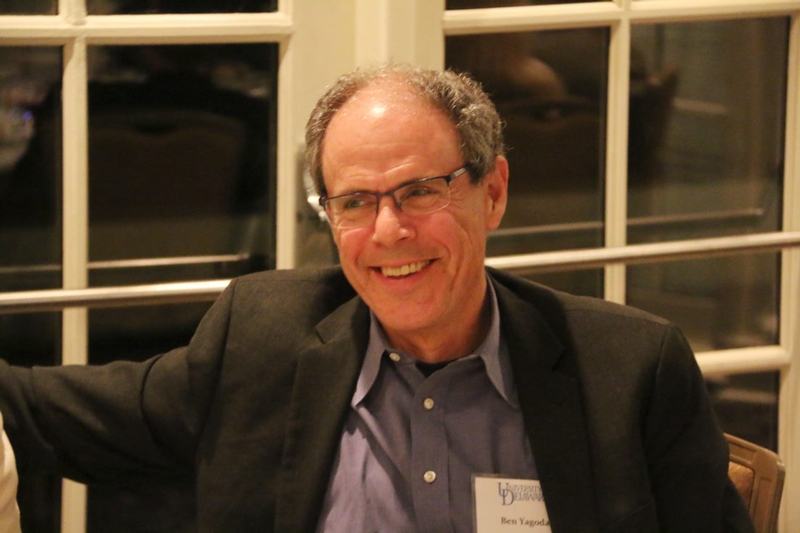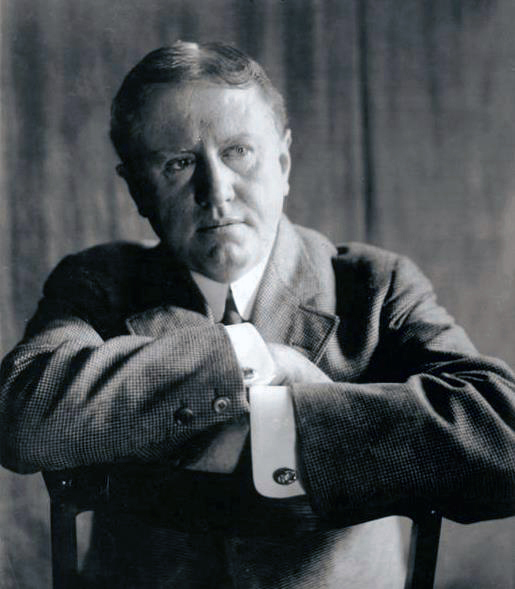


Guggenheim Fellowship
Photo by Eric Ruth and W.M. Vanderweyde May 14, 2020
UD’s Yagoda wins prestigious award to write a book about O. Henry
O. Henry, the short-story writer known for his surprise endings, led a life with some twists and turns of its own, including several months on the lam in Honduras, followed by three years in an Ohio prison on embezzlement charges.
But University of Delaware Prof. Emeritus Ben Yagoda said he thinks the writer has another story to tell as well — a way to show us what life in New York City was like at the start of the 20th century, a place and time when O. Henry was at his most prolific. Yagoda is planning a book exploring that subject and has been awarded a Guggenheim Fellowship to support the work.
“I decided not to do a straight biography but to look at New York during this time through the prism of O. Henry’s stories and his life,” said Yagoda, who has written other biographies, in addition to books about writing, memoirs, music and other topics.

O. Henry wrote hundreds of stories when he lived in New York, from 1902 until his death in 1910, and they reflect everyday life, Yagoda said.
“He was a great walker of the streets,” Yagoda said. “His stories are a window into the city at the time — the slang, the fashions, the buildings, the fads, all sorts of amazing stuff.”
Yagoda is among a diverse group of 175 writers, scholars, artists and scientists selected from almost 3,000 applicants for this year’s fellowships from the John Simon Guggenheim Memorial Foundation. The prestigious fellowships have been awarded since 1925 based on “prior achievement and exceptional promise,” the foundation said in announcing the 2020 recipients.
Since retiring from UD in 2017, Yagoda has remained busy with writing projects. For the past year, he’s been editing a book of O. Henry’s stories for the Library of America, a nonprofit that publishes new, uniform editions of work by America’s greatest writers.
He proposed the book to the Library of America after reacquainting himself with O. Henry’s work and realizing that the publisher’s catalog didn’t yet include that writer. O. Henry, whose real name was William Sidney Porter, was extremely famous during his relatively short but prolific lifetime, but, although he remains a household name, his literary reputation has declined over the decades, Yagoda said.
“I remembered a few of his stories, probably from junior high school [particularly the well-known ‘The Gift of the Magi’ and ‘The Ransom of Red Chief’], but when I started thinking about a book and reading many more of the stories, I was really impressed that a lot of them held up well,” he said. “A lot were humorous and quite witty, not on the level of Mark Twain but certainly in the vein of that type of American humor.”
His work on the collection included detailed research on the language and references O. Henry used, with Yagoda investigating such questions as the meaning of the “kangaroo walk” (a walking-style fad at the time) and whether New York had more than one “flatiron building” (as it turns out, it did). All this research into terminology that might confuse today’s readers became the explanatory endnotes for the Library of America edition. The book, for which Yagoda also wrote the introduction, is expected to be published next year.
The research also sparked the idea for the book about O. Henry in New York. Yagoda is a native New Yorker whose first job as a magazine editor had him living and working in the same part of the city, the Gramercy Park neighborhood, where O. Henry had spent his years in Manhattan.
As he begins work on the new book, Yagoda said he expects to spend a lot of time reading in the library and online but also wandering around “O. Henry country” in New York, he said. He plans to check out locations referenced in the short stories and visit such buildings as Pete’s Tavern, which bills itself today as “the tavern O. Henry made famous” and where the author may or may not have written “The Gift of the Magi.”
The Guggenheim Fellowship covers a one-year period, but there’s no firm deadline for completing the book project. The work will be challenging, Yagoda said, “but I think all good books are challenging to write.”
More about Ben Yagoda
Yagoda retired from the Department of English, where he taught courses in journalism and nonfiction writing, in May 2017.
He is the author of numerous books, including About Town: The New Yorker and the World It Made and Will Rogers: A Biography, and the coeditor, with fellow Prof. Emeritus of English Kevin Kerrane, of The Art of Fact: A Historical Anthology of Literary Journalism. His books about writing and language include The Sound on the Page and How to Not Write Bad.
He has contributed articles, essays and reviews to more than 50 national publications, including Esquire, the New York Times Magazine and the New York Times Book Review.
He publishes two blogs, “Not One-Off Britishisms” and “Movies in Other Movies.”
Contact Us
Have a UDaily story idea?
Contact us at ocm@udel.edu
Members of the press
Contact us at 302-831-NEWS or visit the Media Relations website

